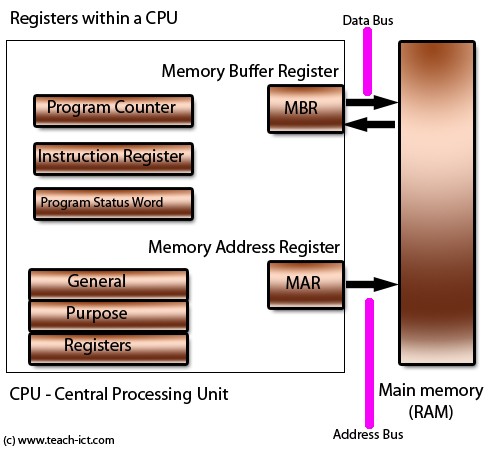 A LEVEL COMPUTING
A LEVEL COMPUTING ALU and Registers
ALU and Registers
 Theory
Theory
7. Memory Registers

Memory Address Register (MAR)
Data and program instructions have to fetched from memory.
The memory address register, or MAR, holds the location in memory (address) of the next piece of data or program to be fetched (or stored).
Memory Buffer Register or Memory Data Register
When the data or program instruction is fetched from memory, it is temporarily held in the 'Memory Buffer Register' (MBR) sometimes also called the Memory Data Register (MDR)
A 'buffer' is a commonly used computer term to describe memory designed to hold data that is on its way to somewhere else.
A memory buffer is a bit like the buffers on a train carriage, as the carriages connect with each other, the buffers will soak up the force. In a memory buffer, a bunch of data may be loaded quickly by some program, then released at a different controlled rate.
For example, burning a DVD involves running a DVD burning application. This will load the data to be recorded into a buffer (in RAM) which is then streamed out at a controlled rate to avoid under-run i.e. running out of data before the recording is complete.
Challenge see if you can find out one extra fact on this topic that we haven't already told you
Click on this link: writing efficient code for memory management
Copyright © www.teach-ict.com

